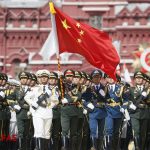
Awakening hope in the country’s economy
Initial doubts that Nepal’s economy will reach a state of collapse like that of Sri Lanka have been removed. The latest data released by Nepal Rastra Bank has shown that the external indicators of the country’s economy have improved significantly.
Along with this, Prime Minister Pushpa Kamal Dahal at the recent 57th Annual General Meeting of Federation of Nepalese Chambers of Commerce and Industry (FNCCI) in the capital and Finance Minister Dr Prakash Sharan Mahat boosted the morale of the private sector by saying that although the economy is under some pressure, there was no need to worry.
As a result of some improvements in the economy, bank interest rates are decreasing. Its positive impact will improve the investment ambiance. As the problems of the private sector are addressed, the morale of entrepreneurs increases, the economic cycle becomes vibrant and the economy takes its positive course.
Indicators of gradual improvement in areas such as balance of payment, foreign exchange reserves, remittance inflow and trade deficit have started to return to the economy, but due to the low revenue collection, it is seen that there is still a lot of effort required to mend the challenges facing the economy. Owing to the impact of recession, the banking sector is under pressure all over the world and some have collapsed in the middle, but the Nepali banks are safe due to strict policy of the central bank.
Governor of the central bank, Mahaprasad Adhikari, has made it clear that Nepal’s banking sector is safe and cannot be ruined by a small shock, but such small shocks should not be ignored. This trust will add enthusiasm to the private sector. However, it should not be forgotten that the economy is in the early stages of recovery. Not all results of reform are achieved immediately.
Inflation of 6.7 percent in economic growth of 4.5 percent is a big challenge. To deal with it, the central bank should not only use monetary instruments but also increase the economic activity, the government’s policies and programmes should be immediately reformed, as per the requirement of the market.
Along with the external improvement of the economy, it is necessary to increase the internal demand. Especially increasing the production within the country, balancing its internal demand and encouraging exports will make the economy vibrant. Increase in employment and production will make it robust. This will lay the foundation for economic growth and create an environment conducive to domestic as well as foreign investment.

Private sector as an engine of growth
The FNCCI, being the apex representative body of the private sector, can play an effective role in making the private sector an engine of growth. The role of the private sector in development has been embraced since the Eighth Plan in Nepal and the involvement and investment of the private sector in the development process has been thereby encouraged. The Constitution of Nepal has also recognized the private sector as the pillar of the country’s economic growth. The constitution envisages a policy of strengthening the national economy through the participation and independent development of the public, private and cooperative sectors. Also, attaching importance to the role of the private sector in the economy to achieve prosperity by utilizing the available resources to the maximum extent, the incumbent government has devised various laws and bylaws meant to facilitate the private sector.
A prosperous Nepal is a national aspiration, but the country’s economic growth rate is not satisfactory. The economic growth rate of the current fiscal year is projected to be around 4 per cent, while the inflation rate is more than 7 per cent, according to the statistics of the central bank. The growth projections of the Asian Development Bank and the World Bank have also shown that comprehensive reforms of the economy are desirable.
Finance Minister Mahat while addressing the FNCCI plenum admitted, “The goal of creating a prosperous country by creating economic development and employment will not be achieved with the economic growth of four per cent of the country. Therefore, Prime Minister Pushpa Kamal Dahal ‘Prachanda’ has laid strong emphasis on coordination and cooperation between the government and the private sector to realize the dream of a prosperous Nepal.”
The Prime Minister from the CPN (Maoist Centre) which has a socialist goal and the Finance Minister from the Nepali Congress which has implemented a liberal economic policy in Nepal, from the parties participating in the current government to the main opposition CPN-UML have accepted the three-pillar economic policy, coordinating the public, private and cooperative sectors, for building a strong national economy policy. We should understand and learn from the experiences, education and examples of foreign countries, but the policy should be decided according to the indigenous economic and political character and originality of our own.
After adopting liberalism, the private sector became almost self-sufficient in several sectors but there are serious questions about the arbitrariness of prices and accountability towards the citizens. The state is taking on the role of the private sector by providing opportunities and facilities for the development of the national economy but the private sector is only looking at its own profits and is extracting as many facilities as possible from the state, but squeezing the consumers.
The role of the private sector in the economic development of any country that has adopted an open and liberal economy has always remained important. Conducting business on the basis of professional values and standards, increasing the quality of goods and services and providing services to the public in an accessible manner is of paramount importance. There is a competition to increase income and employment by augmenting investment with innovative ideas and technology.
Lack of stability, lack of development of physical infrastructure, industrial insecurity, lack of investment-friendly environment, uncertainty of tax rates, etc. have not encouraged the private sector to invest. To overcome these hurdles, political will and commitment, consensus and political leadership in the development of physical infrastructure and foundations are required.
It is necessary for the government, the private sector and the cooperative sector to move forward at the same pace with values such as collective unity, effort, harmony, humanity, and brotherhood based on the principle of cooperation, coexistence and consensus. If the private sector can work confidently, economic development, job creation and investment will be attracted and the country as a whole can become prosperous. Therefore, it is imperative to create an investment-friendly environment for production growth, employment increment and import substitution thereby starting point of economic reform.
















Comments